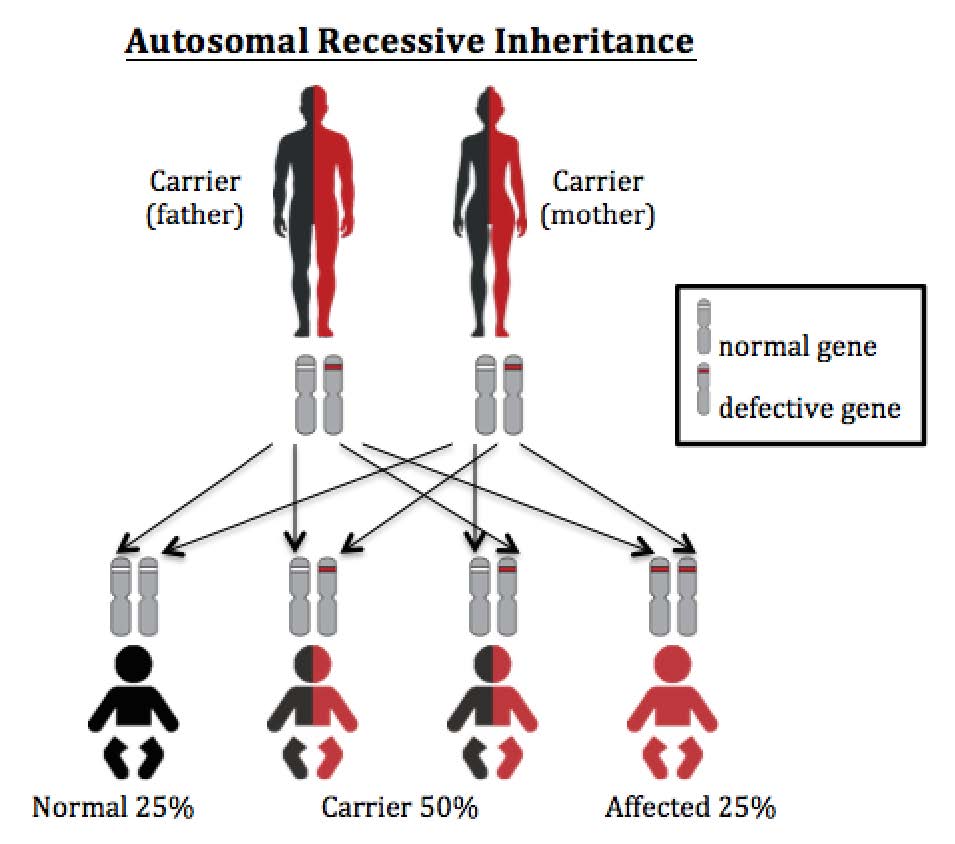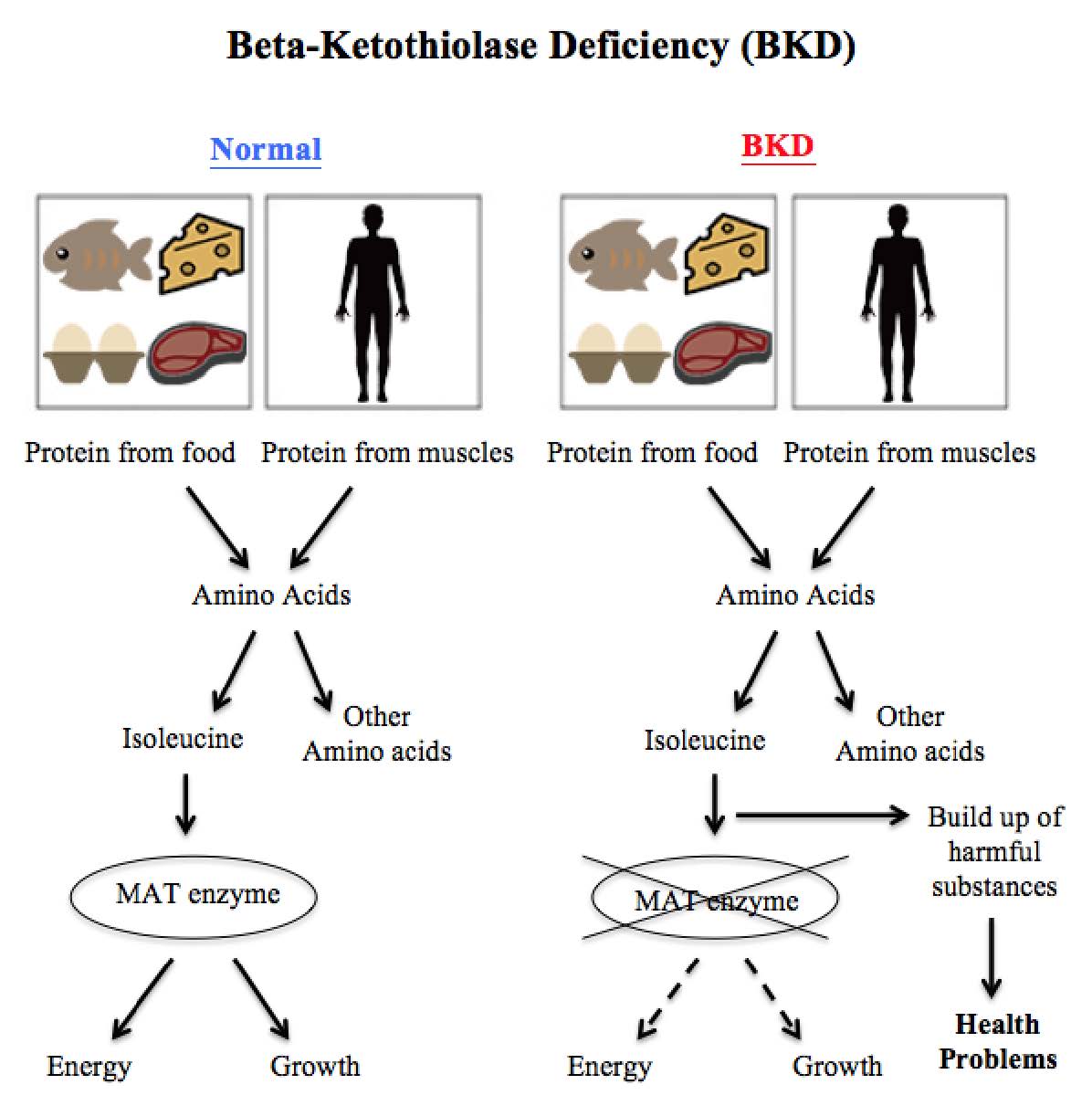
Protein from the food we eat is broken down into building blocks of protein (amino acids) which are then further metabolised by specific enzymes for body growth and energy production.
Beta-ketothiolase deficiency (BKD) is an inherited organic acid disorder due to deficiency of an enzyme called "mitochondrial acetoacetyl-CoA thiolase" (MAT).
Without this enzyme, the body cannot effectively process an amino acid called "isoleucine". The body's ability to process "ketones", which are the molecules produced during breakdown of fat, is also impaired. Harmful substances called organic acid will accumulate and damage the body's tissues and organs, particularly the nervous system. Consequently, metabolic crisis and serious health problem may occur.

The original graphic is converted into the following text version for your easy access to the information.
Beta-ketothiolase deficiency (BKD)
Our body breaks down protein from food into amino acids when we eat, and breaks down protein from body stores into amino acids during prolonged fasting and stress. When functioning normally, our body will produce mitochondrial acetoacetyl-CoA thiolase (MAT enzyme) to help process an amino acid called isoleucine in order to produce energy for our body's use and growth. In people with BKD, the mitochondrial acetoacetyl-CoA thiolase is either missing or not working properly, hence affecting energy supply and growth. As a result, certain harmful substances also build up in the body, causing serious health problems.
Everybody has two copies of genes, one from each parent, which tell the body how to make specific enzymes.
Beta-ketothiolase deficiency is an autosomal recessive disease. Only when babies inherit two faulty copies of the gene for beta-ketothiolase deficiency from parents, the enzyme made does not work properly or is not even made at all.

The original graphic is converted in to the following text version for your easy access to the information.
Autosomal recessive inheritance
In autosomal recessive diseases, people with two faulty copies of gene (one from father and one from mother) will develop symptoms. People with only one faulty copy of gene are normal and they are called disease carriers. BKD is inherited in autosomal recessive manner.
If both parents are BKD carriers, for each pregnancy (no matter it is a baby boy or girl), there is a 25% (1 in 4) chance that the child has 2 copies of normal gene (who is not affected), a 50% (1 in 2) chance that the child has one normal and one faulty gene who is a carrier like the parents, and a 25% (1 in 4) chance that the child has two copies of faulty gene who is at risk for BKD.
The signs and symptoms of BKD are usually not obvious at early stage. Each baby with BKD may experience slightly different symptoms.
Metabolic crisis, which is a period of time when a metabolic disorder makes the baby seriously ill, may develop. Such episode, which is called ketoacidotic attack, typically appears between the age of 6 and 24 months and is frequently triggered by infection, prolonged period without food or increased intake of protein-rich food.
With early treatment, babies with BKD can have healthy growth and development. There are cases where children with BKD show signs of the condition even with treatment. However, these signs usually decrease with age.
The treatment is usually needed throughout life and the goal of treatment is to prevent metabolic crisis and accumulation of toxic metabolites.
The treatment for BKD may include:
It is important that babies with BKD need to be fed regularly and should not go for long periods without eating (i.e. fasting). They also need to see their metabolic doctors regularly.
If you are worried that your baby is ill, it is important to follow medical advice. Bring your baby to your local accident and emergency department immediately. Take any information that you have been given about BKD, including this pamphlet, to the hospital with you.
For general queries on Newborn Screening Programme for Inborn Errors of Metabolism, please call 5741 4280 (Department of Clinical Genetics, Hospital Authority)
July 2024
Hospital Authority